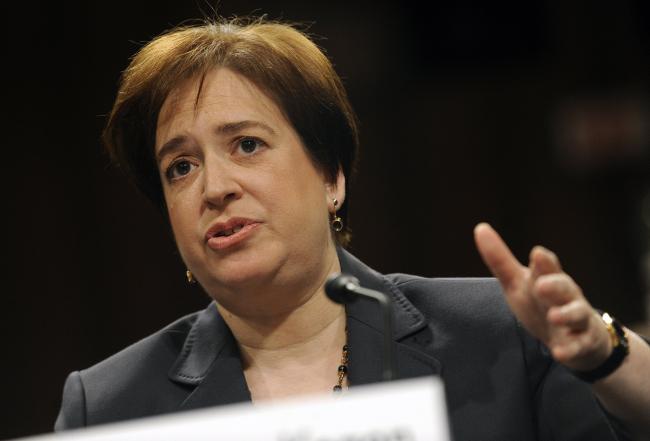Res Judicata: The Case for Kagan's Recusal

The Solicitor General of the U.S. (a position Elana Kagan held in 2010) is the government’s advocate in every case heard in any federal court. Typically the Solicitor will personally argue some cases in the Supreme Court. He or she will certainly be involved with any case that challenges the constitutionality of a federal law.
This is not to minimize the role of the Attorney General, who is also involved in many cases of constitutional import, but the Attorney General does not personally stand up in the Supreme Court and make the argument for the United States. The Solicitor General does so, and must be able to respond to questions from the justices about how the argument he or she is making might differ from prior arguments the government has made in previous cases. “Well, Madam Solicitor," a justice is likely to ask, “today you’re here asking us to take a narrow interpretation of sec. 44 of the law, but last month you signed a brief in the Fourth Circuit asking that Court to take a different view of the same section, right?” And the Solicitor General has to explain why in a persuasive manner that shows enough intellectual consistency so as to enunciate a workable rule of decision that can apply to the current and future disputes.
It was widely reported at the time of her appointment as Solicitor General that Elana Kagan had never argued a case in any court. She had spent her entire legal career as an academic. So the legal world paid more than the usual amount of attention to the few cases that she personally argued in the Supreme court. By all accounts, she performed solidly. This reassured skeptics that she could make the transition from teacher to advocate.
Upon her confirmation, Justice Kagan recused herself from dozens of cases that came up to the Supreme Court because she had participated in them in some way while Solicitor General. The participation requiring recusal from a case by a former government employee can be as minimal as “expressing an opinion concerning the merits of the particular case or controversy.” 28 U.S.C. sec. 455(b)(3). It seemed at the time of her recusals that she was erring on the side of recusal when the question was close.
We rarely get a glimpse of the inner workings of the Solicitor General’s office. So we cannot know for sure what she personally said or did in any particular case to warrant recusal--until now, with the Patient Protection and Affordable Care Act.
Based upon Freedom of Information Act requests by Judicial Watch and other groups, emails have been made public in which Justice Kagan expressed glee in 2010 at the passage of the law, asked to be kept in the loop in all Department of Justice strategy sessions concerning the law and two months before being appointed to the Court actually read a Complaint filed in a federal court challenging the constitutionality of the law and weighed in with her response. We don’t know precisely what her response was, but we don’t need to know.
Can anyone seriously doubt that she has “expressed an opinion concerning the merits of the particular case?” She needs to recuse herself from the health care case if she is maintain her integrity. There has not been such a clear case for recusal in years. In fact I can’t think of one.
In 2004 the Sierra Club and the entire liberal legal establishment demanded, unsuccessfully, that Justice Scalia recuse himself from a case because he had gone duck hunting with Vice President Cheney. The implication was that they had discussed a particular case on his trip. Justice Scalia took the matter quite seriously and wrote a strongly worded defense of his decision not to recuse pointing out that he had not actually discussed the matter with the Vice President, and the two had not shared a single duck blind on the trip. This might sound ridiculous today, but it was important to air this publicly so that the people have confidence in the independence of the justices.
Justice Kagan will have to formally account for her actions as Solicitor General in a similar manner. The case for recusal is so strong and so obvious that her failure to do so will not be accepted by the public. Needless to say, her recusal, or non-recusal, could be the decisive factor in the biggest case of the century (thus far). But she promised in her confirmation decision not to shirk from her obligation to recuse herself when necessary.

